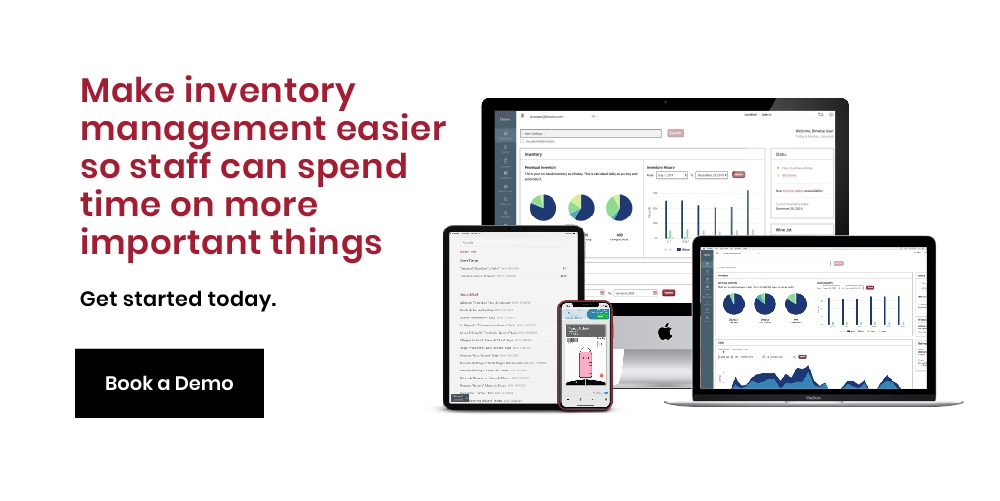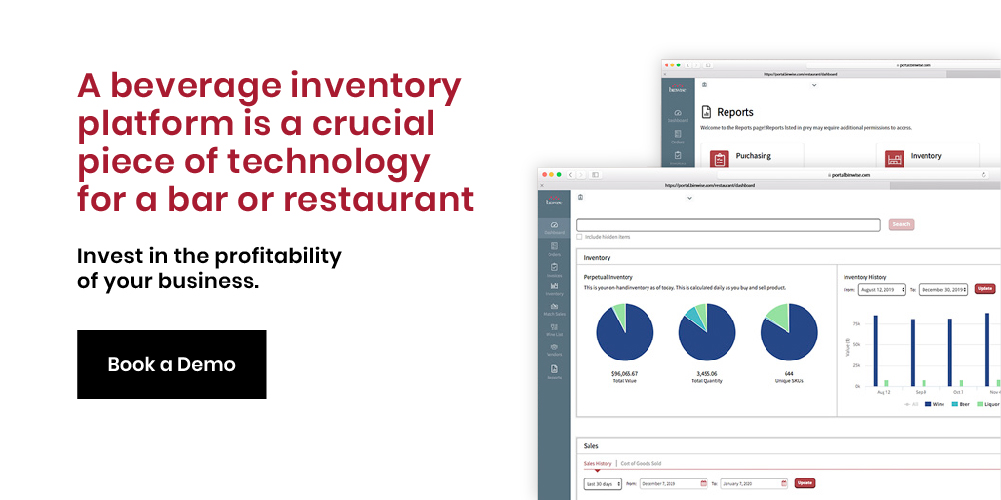Whiskey is one of the most well-loved liquors in the entire world. Although it comes from Ireland and Scotland, currently the country that consumes the most bottles of whiskey is France. In the last few years, whiskey has increased its popularity in the United States, too. It’s currently sold more frequently than vodka, which was the most popular type of alcohol before.
There are plenty of great whiskey pairings and you can make delicious whiskey cake. Many people also ask “Does whiskey help a cold?”. But no matter if whiskey has health benefits or not, it’s a drink that can be consumed neat, on the rock, or as part of the many amazing whiskey cocktails. It's even commonly used to make holiday drinks.
The good news for all whiskey lovers, however, is that there are new types of whiskey they can try. Craft whiskey has been on the rise lately and businesses in the hospitality industry need to catch up. The different craft whiskey types are suitable for different tastes and preferences, but it’s always a good idea to have some in your beverage menu.
Haven’t heard of craft whiskey or simply want to know more about it? If so, this article is for you! Below, we will tell you all about the production of craft whiskey and where you can find it.
Key Takeaway: Craft whiskey is a great addition to any beverage menu. It will attract customers who love both whiskey and unique experiences. Stocking on craft whiskey will also help you support local businesses like distilleries and distribution companies.

Craft Whiskey: The Production Process
The production of craft whiskey is an intricate process that takes a lot of time. It involves several meticulous steps that need to be carefully followed. They are:
- Selection of Grains - The process begins with the selection of high-quality grains. They typically are barley, corn, rye, or wheat. The choice of grain influences the flavor profile of the craft whiskey. Many craft distilleries prefer locally sourced, organic, or unique grain varieties to create distinctive flavors for their production.
- Malting - For malt whiskey, barley is soaked in water to germinate, then dried in a kiln. This process, known as malting, converts the starches in the grain into fermentable sugars. Some craft distilleries might take additional steps, like smoking the malt with peat, to impart specific flavors.
- Mashing - The malted grains are then ground into a coarse flour called grist. This grist is mixed with hot water in a mash tun to extract the sugars. The resulting liquid, known as wort, is rich in sugars needed for fermentation.
- Fermentation - The wort is transferred to fermentation vessels. Then yeast is added. The yeast ferments the sugars, producing alcohol and a variety of flavorful compounds. This stage can last from a few days to a week, depending on the distiller’s techniques and desired flavor profile.
- Distillation - The fermented liquid, now called "wash," is distilled to concentrate the alcohol and flavors. Most craft whiskey is distilled twice in copper pot stills, though some may be distilled more times or using different types of stills. The copper in the stills helps remove sulfur compounds, contributing to a cleaner taste.
- Maturation - The distilled spirit is transferred to wooden barrels (usually oak) so the agin can begin. The aging process is crucial as it allows the whiskey to develop complex flavors and smoothness. The type of oak, the previous use of the barrel (e.g., former bourbon, sherry, or wine barrels), and the aging environment all influence the final product. Craft distillers often experiment with different barrel types and aging times to create unique whiskeys.
- Bottling - After aging, the whiskey is filtered and diluted to the desired bottling strength. Producers often bottle their whiskey without chill filtration to preserve its natural flavors and oils. Some may also offer cask-strength versions, which are bottled directly from the barrel without dilution.
It’s important to note that craft whiskey production is done in small batches. Lots of attention to detail and innovation goes into the process and craft distillers often experiment with unique grains and fermentation techniques, as well as distillation methods. The different steps they take and experiment with create distinctive and high-quality products that typically can’t be found anywhere else.

How to Find Craft Whiskey for Bars and Restaurants
If you are a business owner looking to stock on craft whiskey, you probably have a few questions. That’s why we have gathered information on where to find craft whiskey so you can add it to your beverage inventory and boost customer satisfaction for all whiskey enthusiasts.
Local Distilleries
The first step to take when looking for craft whiskey for your business is to reach out to local distilleries. This is a great way to find amazing locally-made whiskeys with unique flavors. Many distilleries offer direct sales to businesses and may provide special pricing for bulk purchases. You can also build a relationship with these businesses, which can be beneficial for the future.
Distributors and Wholesalers
Next, you can reach out to wholesale alcohol distributors that serve your specific area. They often carry various craft whiskeys from different producers. This will allow you to expand your offers and diversify your beverage menu.
Online Retailers
Several online retailers specialize in craft spirits and can ship directly to your business. Do your research and talk to others in your industry. You may be able to get great recommendations on businesses that carry great craft whiskey. Just make sure you are familiar with the shipping regulations for your state.
Specialty Spirits Retailers
Some retailers specialize in specialty spirits. When you find such retailers, you will probably be able to get different types of craft vodka, too. The specialty retailers will help you tremendously in building a menu filled with specialty spirits that will attract customers interested in trying new flavors.
Beverage Trade Shows and Expos
Attending beverage trade shows and expos can provide opportunities to sample a variety of craft whiskeys and meet producers. Get informed about such expos and arrange for you and some members of your staff to attend them so you can select whiskeys you like and create connections with producers.

Frequently Asked Questions about Craft Whiskey
Do you still have a question about craft whiskey? If you do, we are here to help by answering some of the most commonly asked questions. Read our answers below to get even more insight into the topic!
How Is Craft Whiskey Different from Commercial Whiskey?
Craft whiskey differs from commercial whiskey in its production scale, ingredient sourcing, and production methods. Craft distilleries focus on small-batch production and often experiment with different grains, fermentation processes, and aging techniques. This artisanal approach results in unique flavor profiles that set craft whiskeys apart from their mass-produced counterparts.
What Should I Look for When Choosing a Craft Whiskey?
When choosing a craft whiskey, consider the distillery's reputation, the type of grains used, the aging process, and any unique production methods. Tasting notes and reviews can also help guide your selection. Visiting the distillery or attending a tasting event can provide a firsthand experience of the whiskey's qualities.
Is Craft Whiskey More Expensive than Commercial Whiskey?
Craft whiskey can be more expensive than commercial whiskey due to its small-batch production, higher-quality ingredients, and artisanal methods. The cost reflects the attention to detail and unique characteristics of each batch. However, many enthusiasts find the distinctive flavors and craftsmanship worth the extra expense.

.png)